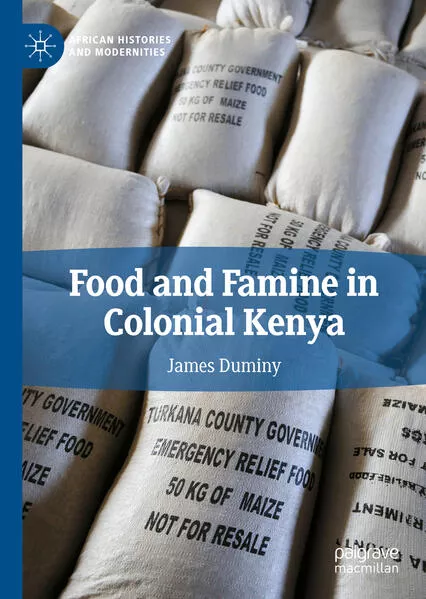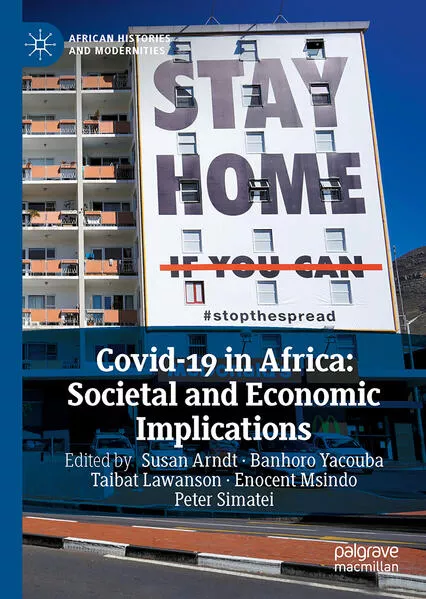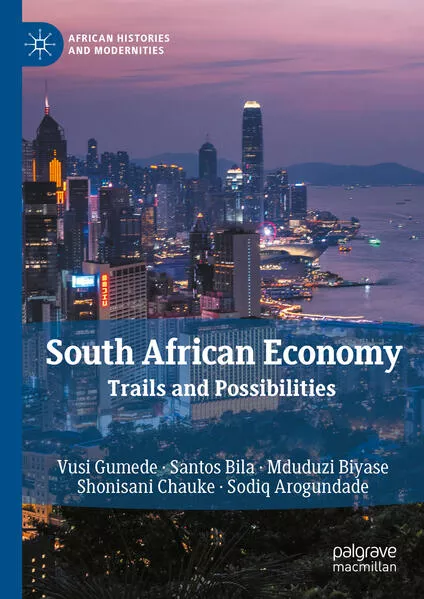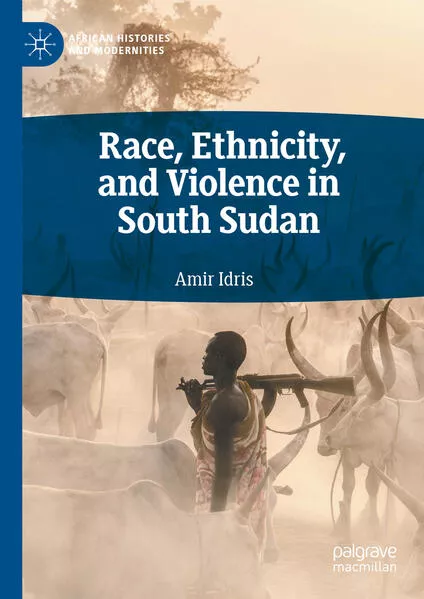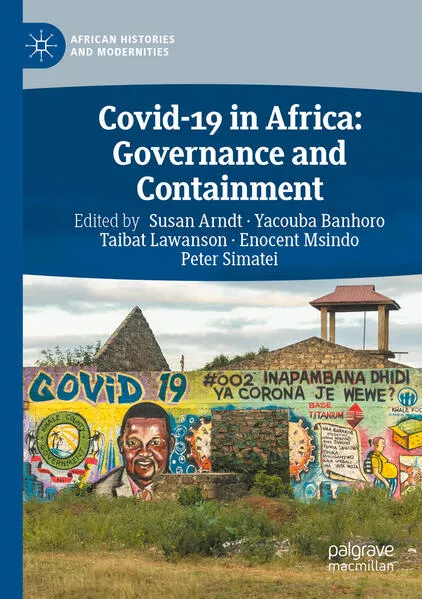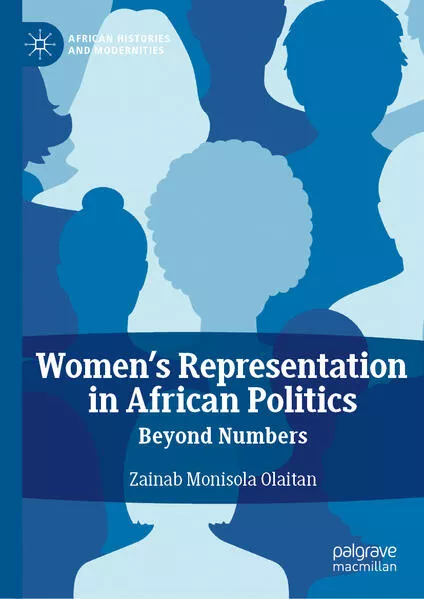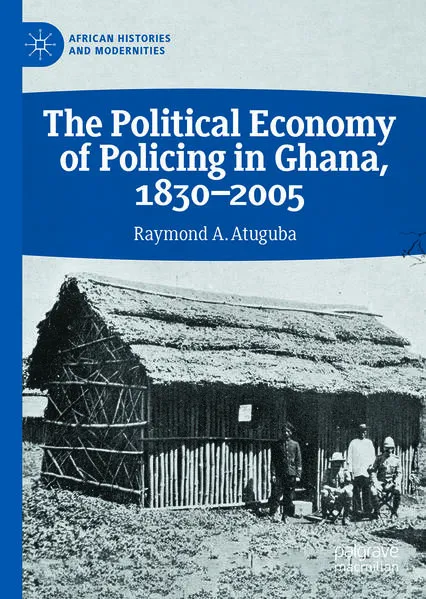Chronologie aller Bände (1 - 11)
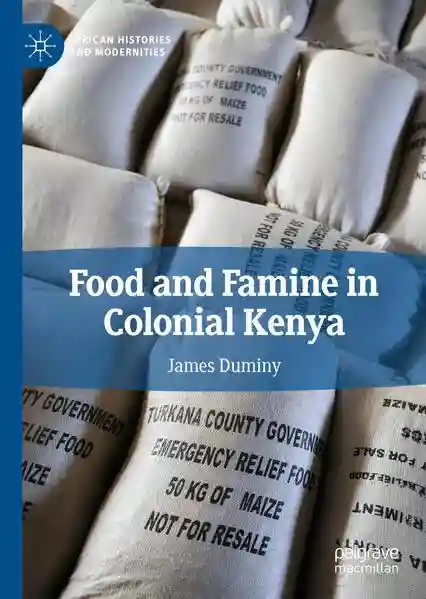
Die Reihenfolge beginnt mit dem Buch "Food and Famine in Colonial Kenya". Wer alle Bücher der Reihe nach lesen möchte, sollte mit diesem Band von James Duminy beginnen. Der zweite Teil der Reihe "Food and Famine in Colonial Kenya" ist am 19.10.2022 erschienen. Mit insgesamt 11 Bänden wurde die Reihe über einen Zeitraum von ungefähr 3 Jahren fortgesetzt. Der neueste Band trägt den Titel "The Political Economy of Policing in Ghana, 1830-2005".
- Anzahl der Bewertungen für die gesamte Reihe: 0
- Ø Bewertung der Reihe: 0
- Start der Reihe: 19.10.2022
- Neueste Folge: 12.08.2025
Diese Reihenfolge enthält 9 unterschiedliche Autoren.
- Autor: Duminy, James
- Anzahl Bewertungen: 0
- Ø Bewertung:
- Medium: Buch
- Veröffentlicht: 20.10.2022
- Genre: Politik
Food and Famine in Colonial Kenya
This book offers a genealogical critique of how food scarcity was governed in colonial Kenya. With an approach informed by the ‘analysis of government’, the study accounts for the emergence and persistence of dominant approaches to promoting food security in Kenya and elsewhere in Africa – policies and practices that prioritize increased agricultural production as the principal means of achieving food security. Drawing on a range of archival sources, the book investigates how those tasked with governing colonial Kenya confronted food as a particular kind of problem. It emphasizes the ways in which that problem shifted in conjunction with the emergence and consolidation of the colonial state and economic relations in the territory. The book applies a novel conceptual approach to the historical study of African food systems and famine, and provides the first longitudinal and in-depth analysis of the dynamics of food scarcity and its government in Kenya.
- Autor: Arndt, Susan
- Anzahl Bewertungen: 0
- Ø Bewertung:
- Medium: Buch
- Veröffentlicht: 10.09.2023
- Genre: Politik
Covid-19 in Africa
Lastly, the Covid-19 pandemic impacted regional trade and other bilateral relations in Africa, creating possibilities for regional entities such as ECOWAS and EAC to demonstrate their creativity (or a lack of it) in dealing with the pandemic. The contributors thus examine the regional dimension of the crisis and particularly evaluate how covid-19 tested the resilience of multilateralism, regional trade networks, cross border informal economies, and human movements.
The volume is thus a useful resource for scholars of Africa, policy makers and those who want to understand Covid-19 in Africa. It provides a multiplicity of perspectives of the pandemic and African responses at different levels of society, economy and the political spectrum. The continental focus of this volume gives room for broader comparative analyses. Lastly, this interdisciplinary work benefits from the input of medical historians, anthropologists, sociologists, linguists, political scientists, literature scholars, urban planners, geographers and others.
- Autor: Arndt, Susan
- Anzahl Bewertungen: 0
- Ø Bewertung:
- Medium: Buch
- Veröffentlicht: 17.11.2023
- Genre: Politik
Covid-19 in Africa: Societal and Economic Implications
Written amidst the ongoing Covid-19 pandemic, this edited volume draws on the expertise of social scientists and humanities scholars to understand the many ramifications of Covid-19 on societies, politics, and the economies of Africa. The contributors examine measures, communicative practices, and experiences that have guided the (inter)action of governments, societies, and citizens in this unpredictable moment. Covid-19 tested governments’ disaster preparedness as well as exposed governments’ attitudes towards the poor and vulnerable. In the same vein, it also tested the agency of the African populace in the face of containment measures and their impact on everyday social, cultural, and economic practices of ordinary people. In this vein, our concern is to understand the relationship between growing vulnerability on the one hand, and ingenuity of agency on the other, and how both were embodied, narrated and discoursed by the African poor, university students, religious entities, middle-classes, and those who bore the major brunt of the lockdowns.
The volume is thus a useful resource for scholars of Africa, policy makers and those who want to understand Covid-19 in Africa. It provides a multiplicity of perspectives of the pandemic and African responses at different levels of society, economy and the political spectrum. The continental focus of this volume gives room for broader comparative analyses. Lastly, this interdisciplinary work benefits from the input of medical historians, anthropologists, sociologists, linguists, political scientists, literature scholars, urban planners, geographers and others.
- Autor: Dube, Bekithemba
- Anzahl Bewertungen: 0
- Ø Bewertung:
- Medium: Buch
- Veröffentlicht: 10.12.2023
- Genre: Politik
Religious leaders as Regime Enablers and/or Resistors in the Second Republic of Zimbabwe
- Autor: Gumede, Vusi
- Anzahl Bewertungen: 0
- Ø Bewertung:
- Medium: Buch
- Veröffentlicht: 16.05.2024
- Genre: Politik
South African Economy
The South African economy has largely performed below its potential. Although the size of the South African economy has significantly increased since 1994, its performance has lagged behind other comparable economies, and has even been overtaken by Nigeria as the largest economy in Africa. Unemployment, income inequality, and poverty have remained high since 1994. In the past decade, South African economic performance has been so poor that is has resulted in declining per capita incomes.
In this study, Vusi Gumede and his co-authors offer a comprehensive analysis of the South African economy since 1994, dealing with many important issues, ranging from its history to its political travails in an effort to provide better understanding and find possible solutions to ensuring inclusive growth.
- Autor: Idris, Amir
- Anzahl Bewertungen: 0
- Ø Bewertung:
- Medium: Buch
- Veröffentlicht: 20.06.2024
- Genre: Politik
Race, Ethnicity, and Violence in South Sudan
The purpose of this book is to understand how and why “liberators” of South Sudan have become perpetrators of ethnically driven violence. How and why did violence happen immediately after independence in South Sudan?
South Sudan slid into civil war in December 2013, just two years after winning its hard-won independence. A great deal has been written about the conflict and violence of this period, much of which emphasizes the notion that the root causes of the conflict can be traced to the ethnic division and hatred among the population or the lack of state capacity to manage ethnic diversity and hostilities. However, the existing literature exhibits important analytical gaps, focusing primarily on the state of the violence and the immediate political history of South Sudan dating back to its political independence in 2011, but lacking critical analysis of historical and anthropological interpretations of state and society. This book addresses these gaps in knowledge and understanding and in so doing seeks to explain how and why liberators become perpetrators of violence, and how the intersection of the legacies of slavery, colonialism, and national liberation struggle contributed to violence in South Sudan. Through a comprehensive exploration of identity and violence within the broader context of state formation, the book sheds light on why those who sought sovereignty may turn against their own, drawing parallels with colonial discourse. It aspires to provide nuanced frameworks and empirical insight for scholars, students, practitioners, and policymakers engaged in South Sudan, politics, development, and peacebuilding.
- Autor: Besenyő, János / Khanyile, Moses B. / Vogel, David
- Anzahl Bewertungen: 0
- Ø Bewertung:
- Medium: Buch
- Veröffentlicht: 16.07.2024
- Genre: Politik
Terrorism and Counter-Terrorism in Modern Sub-Saharan Africa
Acts of terrorism and forms of counter-terrorism have been evolving for quite a long time. Although we have been living with these phenomena for centuries, they have only recently become part of the daily lives of many in the West since the dawn of the millennium. In some countries, they have become so prevalent that they shape the daily lives and habits of citizens. For these reasons, it is of utmost importance for all of us to understand the root causes, the drives and the motives behind terrorist activities, preferably even before they can materialize. In this challenge, counter-terrorism activities play a crucial role. In this book, contributors from various disciplines discuss terrorism and counter-terrorism on the African continent through case studies from Nigeria, Kenya, Cameroon, Ghana, or Mozambique and the Sahel region. In addition to analysis, they offer possible steps for improving the situation.
- Autor: Arndt, Susan
- Anzahl Bewertungen: 0
- Ø Bewertung:
- Medium: Buch
- Veröffentlicht: 31.08.2024
- Genre: Politik
Covid-19 in Africa: Governance and Containment
Lastly, the Covid-19 pandemic impacted regional trade and other bilateral relations in Africa, creating possibilities for regional entities such as ECOWAS and EAC to demonstrate their creativity (or a lack of it) in dealing with the pandemic. The contributors thus examine the regional dimension of the crisis and particularly evaluate how covid-19 tested the resilience of multilateralism, regional trade networks, cross border informal economies, and human movements.
The volume is thus a useful resource for scholars of Africa, policy makers and those who want to understand Covid-19 in Africa. It provides a multiplicity of perspectives of the pandemic and African responses at different levels of society, economy and the political spectrum. The continental focus of this volume gives room for broader comparative analyses. Lastly, this interdisciplinary work benefits from the input of medical historians, anthropologists, sociologists, linguists, political scientists, literature scholars, urban planners, geographers and others.
- Autor: Olaitan, Zainab Monisola
- Anzahl Bewertungen: 0
- Ø Bewertung:
- Medium: Buch
- Veröffentlicht: 13.12.2024
- Genre: Politik
Women's Representation in African Politics
Does the election of more and more women into political offices mean that women’s interests will be better protected? This question forms the background upon which this book is written as it forms a timely intervention concerning the clamour for increased women’s representation in African politics. The book examines the relationship between gender quotas and gender-focused legislative/policy outcomes in the national Parliaments of South Africa and Botswana. By investigating the utility of gender quotas to ensure the substantive representation of women in African politics, the book engages the assumption that increased women’s political participation will automatically improve the qualitative well-being of African women. The book is intended for both academic and non-academic audiences with differing purposes. It contributes to scholarly debates on the transcending relevance of quotas beyond numbers. For non-academics, it provides opportunities to engage gender quotas as a policy tool to ensure the qualitative well-being of African women.
- Autor: Dube, Bekithemba
- Anzahl Bewertungen: 0
- Ø Bewertung:
- Medium: Buch
- Veröffentlicht: 16.12.2024
- Genre: Politik
Regime, Religion and the Consolidation of Zanu-PFism in Zimbabwe
- Autor: Atuguba, Raymond A.
- Anzahl Bewertungen: 0
- Ø Bewertung:
- Medium: Buch
- Veröffentlicht: 12.08.2025
- Genre: Sonstiges
The Political Economy of Policing in Ghana, 1830-2005
This book is a testament to the importance of historical institutional analysis for understanding the reform of Africa’s institutions. As an entry point, Raymond Atuguba examines the regulations of public order and alcohol by the police in Ghana, outlining an interplay of changing ideological and interest formations on the one hand and changing institutional forms on the other. The study reveals not only new forms of oppressive institutional orderings that descend from colonialism; but also new institutional forms that produce possibilities and countervailing technologies of power, capable of meeting and assailing the ways in which the power of post-modern colonialism mobilizes itself.
In sum, this book explores the themes of institutional continuities, hegemonic practices, and institutional reform. It discusses how the British political, economic and legal infrastructure penetrated and disrupted pre-existing regulation of public order and alcohol that was conducive to a particular political economy and various social practices. It emphasizes the enduring character of the new institutions created around public order and alcohol, and how they crystallized at independence and were perpetuated in the post-independence era.
